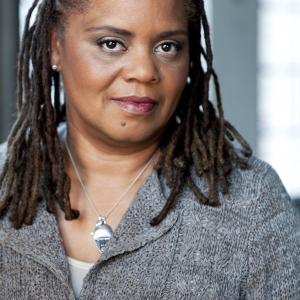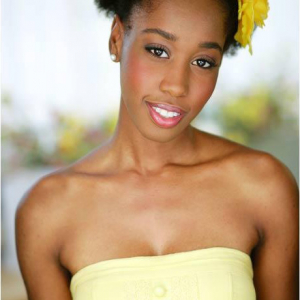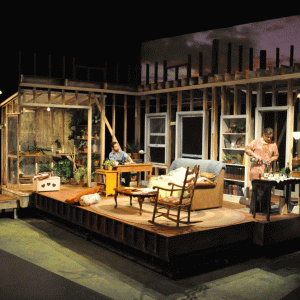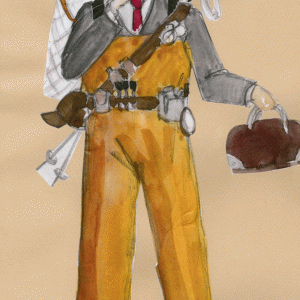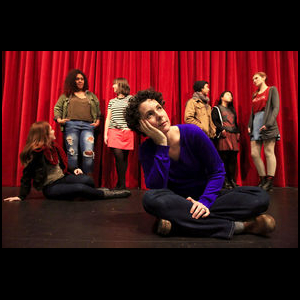Welcome to the University of Washington School of Drama’s newly envisioned academic newsletter, The Through Line.
On a quarterly basis, we will keep you apprised of the work being done by our students, alumni, faculty, and staff. We’ll go behind-the-scenes with our directors, designers, actors, and scholars to share with you, through their voices, what makes the University of Washington a unique environment in which to study, explore, and prepare for a career in the performing arts.
We hope you’ll enjoy learning more about our students and our programs. If you have any questions or comments, please feel free to contact us at: katrinae@uw.edu.
The Professional Actor Training Program (PATP) doesn’t produce a “UW” kind of actor. While there is certainly a distinct UW philosophy when it comes to actor training, it has nothing to do with fitting an artist into a mold – a preconceived notion of the right features necessary to make it in the professional world. Part of that is due to the fact that the definition of “making it” has been blown wide-open by the unique vision of the performance faculty, led by Professor Valerie Curtis-Newton.
Curtis-Newton, herself a graduate of the UW’s directing program (MFA 1996), has been a faculty member in the School of Drama since 1998. She stepped into the role of head of the performance program in spring 2012. In that capacity, she oversees the PATP and Directing MFA programs, in addition to an active outside work schedule. For Curtis-Newton, the academic and professional work feed each other and she takes lessons from each into the other.
Professor Curtis-Newton recently took the time to sit down and talk about what makes the UW program unique and what keeps her invested in continuing to help develop the next generation of theatre artists.
Why do you teach?
I think of it as a calling. We can give our students back to their best selves. We have the opportunity to remind them of their creativity and the sound of their voices. To set them up with a kind of...
Read moreMonique A. Robinson knows Shakespeare, but she takes her mantra from The Magic School Bus – “It is OK to take chances, make mistakes, and get messy.” Monique has always loved reading Shakespeare, but it wasn’t until her graduate studies at the University of Washington that the relationship went from dating to going steady. You could now say the two are officially married. Monique landed in Ashland, Oregon on January 2 and went straight into rehearsals as a new company member of the Oregon Shakespeare Festival.
Monique entered the Professional Actor Training Program (PATP) excited about Suzuki and Viewpoints training. “You enter grad school with a hammer and you come out with a full tool kit,” says the actor. “Besides the specific tools, grad school taught me how you bring YOU to your work. You can’t divorce your personage. It taught me how to be genuine to both myself as an actor and to the text.”
During her time at UW, Monique built her stamina – learning how to persevere. “That’s a lesson I learned from Scott Hafso [Lecturer in Speech and Singing],” she says. “You can have skill and talent, but you also have to have discipline and commitment to your craft.” That commitment and the program’s emphasis on making your own work means Monique isn’t just waiting for opportunities, but making them....
Read moreSecond-year Scenic Design MFA candidate Jared Roberts knows the importance of understanding how actors move through space. During his undergraduate studies, he would design a show, paint it, light it, and act in it. “I think it’s really critical that I got to experience the overall arc of a production.” He took that knowledge and applied it to the design for the production of Fifth of July, which ran last November. Here, Jared gives us insight into the process and big ideas that brought his vision to the stage.
What about Fifth of July made it an exciting play to design for?
It’s straight forward and real. Everything is out on the table. I try to let the script show me how to design for the show versus the time period. I wouldn’t approach it any differently if the script is set two weeks ago or 200 years ago. I’d ask the same questions. Who are the characters? Why produce this show here and now?
What was the process for designing the set for Fifth of July?
Val [Director and Professor Valerie Curtis-Newton] had a couple of driving forces in mind. The question driving everything was: What do you do when the fireworks are over? Then, there was the idea that all the characters escaped their everyday lives to come back to this particular place, but once they arrive they become trapped by their relationships to each...
Read moreIf you saw last quarter’s production of Tom Stoppard’s The Real Inspector Hound, you were lucky enough to see the beautiful, character-defining work of second-year Costume Design MFA candidate Melinda Hare. This quarter, Melinda tackles the costumes for the world premiere of EM Lewis’s Reading to Vegetables, directed by MFA Directing candidate Tina Polzin. Melinda walks us through the process for taking costumes from sketch to stage, as well as the unique challenges and opportunities of historical and contemporary work.
How do you go about conceptualizing your costume designs? What was the process for The Real Inspector Hound?
I read the script first. There is always an initial designers meeting with the director to find out what in the show is important to the director. What impulses are they following? Where does the director want to take the show? It’s important for me to know the script really well before that meeting, so that I can ask questions. For Hound, I looked at photos and fashion magazines from the time. I looked at production photos of Agatha Christie plays since that is what Tom Stoppard was watching and responding to. I sent off anything relevant from my research to Des [director Desdemona Chiang] to see her...
Read moreReflection by Professor Odai Johnson
The PhD program was represented in full force, once again, at this year’s American Society for Theatre Research (ASTR) conference: faculty, emeritus faculty, graduate students, and alumni all made a strong presence in this prestigious event. Current student Jyana Browne won the Thomas Marshall travel award, while recent UW graduate Gibson Cima, PhD ’12, won the Targeted Research Fellowship. Two other recent graduates, Lisa Jackson-Schebetta, PhD ’10, and Jeanmarie Higgins, PhD ’11, jointly won the Collaborative Research Award. Among the other points of visibility: Associate Professor Scott Magelssen served as conference program co-chair; Professor Emeritus Barry Witham delivered a moving memorial for distinguished scholar and former UW professor Herb Blau; Gib Cima and Professor Odai Johnson delivered plenary papers; and two current graduate students, Bahar Karlidag and Chris Goodson, delivered papers in the working sessions.
Present at the conference were Scott Magelssen, Stefka Mihaylova, Odai Johnson, Barry Witham, Angela Weaver (School of Drama Librarian, Theatre Library Association); current students included Jyana Brown, Bahar Karlidag, Chris Goodson; and recent graduates Samer Al Sabor, Lezlie Cross, Gib Cima, Michelle Granshaw, Lisa Jackson-Schebetta, Jeanmarie Higgins, Michael Chemers, and Ken Cerniglia.
The...
Read moreLast month, Holly Arsenault (BA ’01) was named by The Seattle Times as one of the 13 for ’13 people poised to shape the arts in the Pacific Northwest. As Executive Director of Teen Tix, Holly works to connect young people with the arts through discounted tickets, workshops, and a Teen Press Corps.
Many of our alumni were honored for theatrical excellence by the Seattle Times Footlight Awards. Highlights include Trouble in Mind and Broke-ologynamed as Top Mainstage Plays. Both were directed by faculty member and alumna Valerie Curtis-Newton (MFA ’96). Pamela Reed (PATP ’75), Amanda Zarr (PATP ’09), and Richard Nguyen Sloniker (PATP ’09) were honored for their Great Performances. Jocelyn Maher (BA ’13) was recognized as a Fresh Face. Jennifer Lupton (MFA ’80) and Andrea Bryn Bush (MFA ’07 and staff) were recognized for their Dazzling Designs. Congratulations to all our alumni!
Highlights from our Winter 2014 Quarter include:
Whit Week, January 6-10
Whit MacLaughlin, Artistic Director of New Paradise Laboratories, visited and workshopped with graduate students in preparation for his residency this spring where he will create a new work in collaboration with UW students.
Documentary Theatre
Doctoral seminar taught by Associate Professor Scott Magelssen
Conversations with Antiquity
Doctoral Seminar taught by Professor Odai Johnson
MFA Seminar in Directing
Taught by guest faculty Christine Sumption and Anita Montgomery
Reading to Vegetables, January 29-February 9
by EM Lewis
directed by Tina Polzin, PDTP
The Arabian Nights, February 26-March 9
by Mary Zimmerman
directed by Leah Adock-Starr, PDTP
